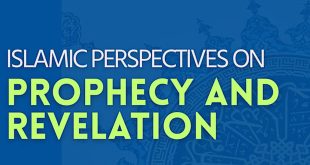In this authoritative biography, Muhammad Qasim Zaman offers a comprehensive and highly accessible account of Thanawi’s multifaceted career and thought, whilst also providing a valuable introduction to Islam in modern South Asia.
Ashraf `Ali Thanawi (1863-1943) was one of the most prominent religious scholars in Islamic history. Author of over a thousand books on different aspects of Islam, his work sought to defend the Islamic scholarly tradition and to articulate its authority in an age of momentous religious and political change.
Few figures from modern South Asia better illuminate the culture of the traditionally educated Muslim religious scholars, the ‘ulama, and their efforts to defend their scholarly tradition and articulate their authority in conditions of momentous religious and political change than Ashraf ‘Ali Thanawi (1863–1943). Thanawi’s juridical writings, including numerous fatwas addressing questions directed to him by Muslims from all over the Indian subcontinent, came to be influential in his own day and they have continued to shape discourses on Islamic law in both postcolonial India and in Pakistan. His Bihishti zewar (“Heavenly Ornaments”), a work intended specifically to inculcate the “proper” understanding of Islamic norms among Muslim women, is among the most influential books in Muslim South Asia. In the rich and varied Sufi landscape of the Indian subcontinent, Thanawi gradually emerged as a major figure, and some of the leading ‘ulama of the twentieth century came to count themselves among his disciples. His writings, and those of some of the disciples who lived in close proximity at his Sufi lodge and whose work he commissioned and oversaw, remain unmatched among the ‘ulama of South Asia in their range and their sheer volume.
Yet Thanawi is not well-known outside South Asia. In considerable measure, this has to do with the fact that, unlike some of his Indian contemporaries and not a few of his disciples, Thanawi wrote not in the Arabic language but rather in Urdu, the principal language of the Muslims of northern India in his age but one not understood outside South Asia. It also has to do, however, with the rather scant attention that contemporary scholars have usually given to the thought of the ‘ulama of modern times, in the Middle East and in South Asia. This contrasts with the increasingly sophisticated work on pre-modern Islamic legal, theological, and political thought. It also contrasts with the substantial body of literature that relates, on the one hand, to Muslim modernist and liberal thinkers – that is, those educated in western or westernized institutions of learning and seeking to rethink Muslim practices in light of what they take to be the challenges of modernity – and, on the other, to the Islamist (or “fundamentalist”) ideologues and activists committed to the public implementation of Islamic norms. In explicating Thanawi’s thought, which took shape during a time of great intellectual, religious, and political ferment in the history of modern South Asia, this study offers some account of evolving trends in South Asian Islam since the late nineteenth century. It seeks also to illustrate how the ‘ulama have sought to shape these trends in the course of defining and defending their own position in a contentious public and religious sphere. In this respect, this study should contribute to a better understanding of the culture of the ‘ulama,and not just in South Asia. A major focus of this study is on issues of religious authority, in intellectual, social, as well as political contexts, and as illustrated by the career and discourses of a preeminent religious scholar. Contestations on religious authority are scarcely peculiar to South Asian Islam, any more than they are to Islam in the modern world. What Thanawi’s discourses might tell us about articulations of religious authority in modern Muslim South Asia may be of broader interest than their specific geographical or historical milieu. The same might be said of some of the many tensions and ambiguities attending upon these articulations.
About the Author
 Ijtihad Network Being Wise and Faithful Muslim in the Contemporary World
Ijtihad Network Being Wise and Faithful Muslim in the Contemporary World

